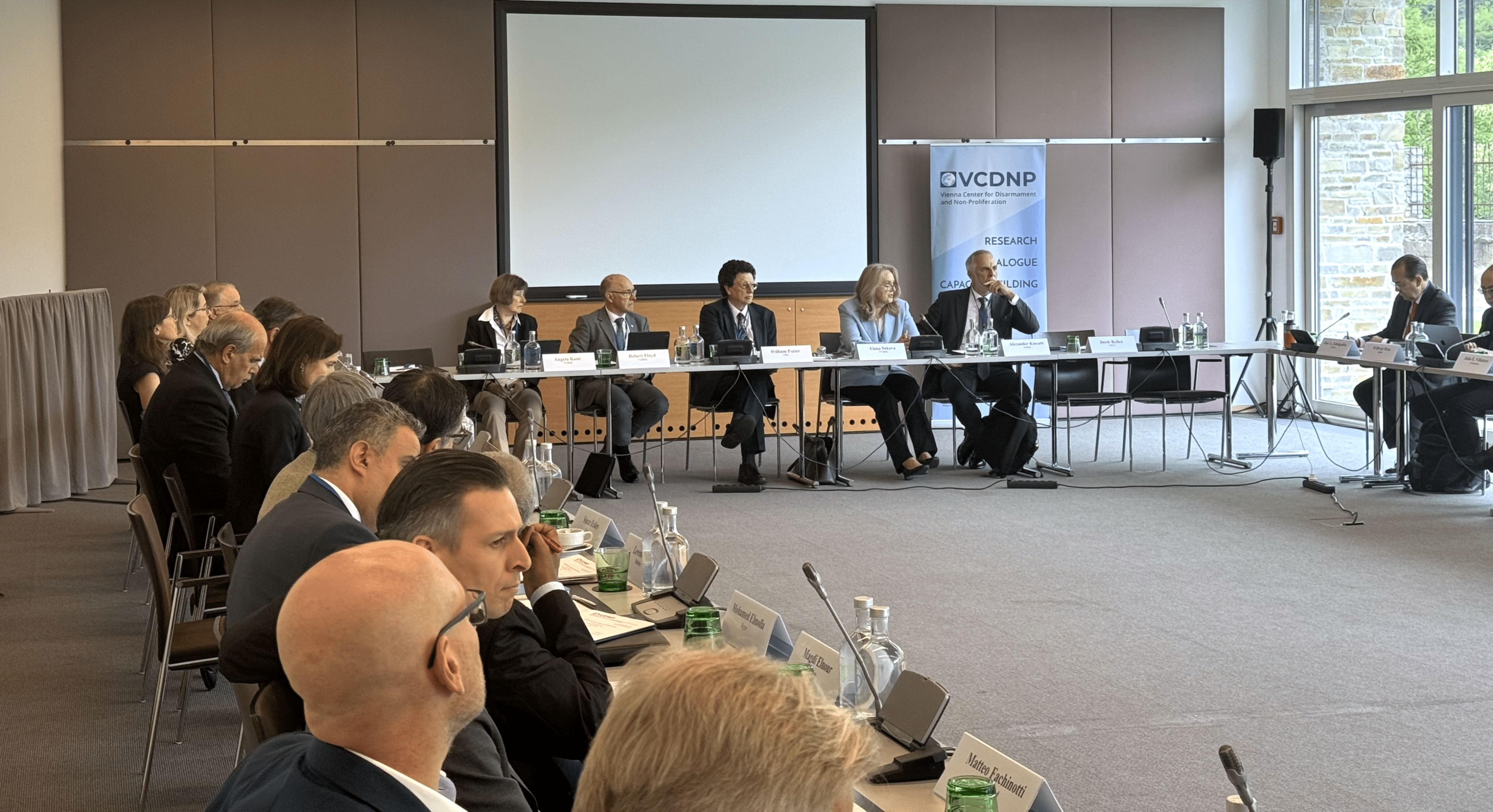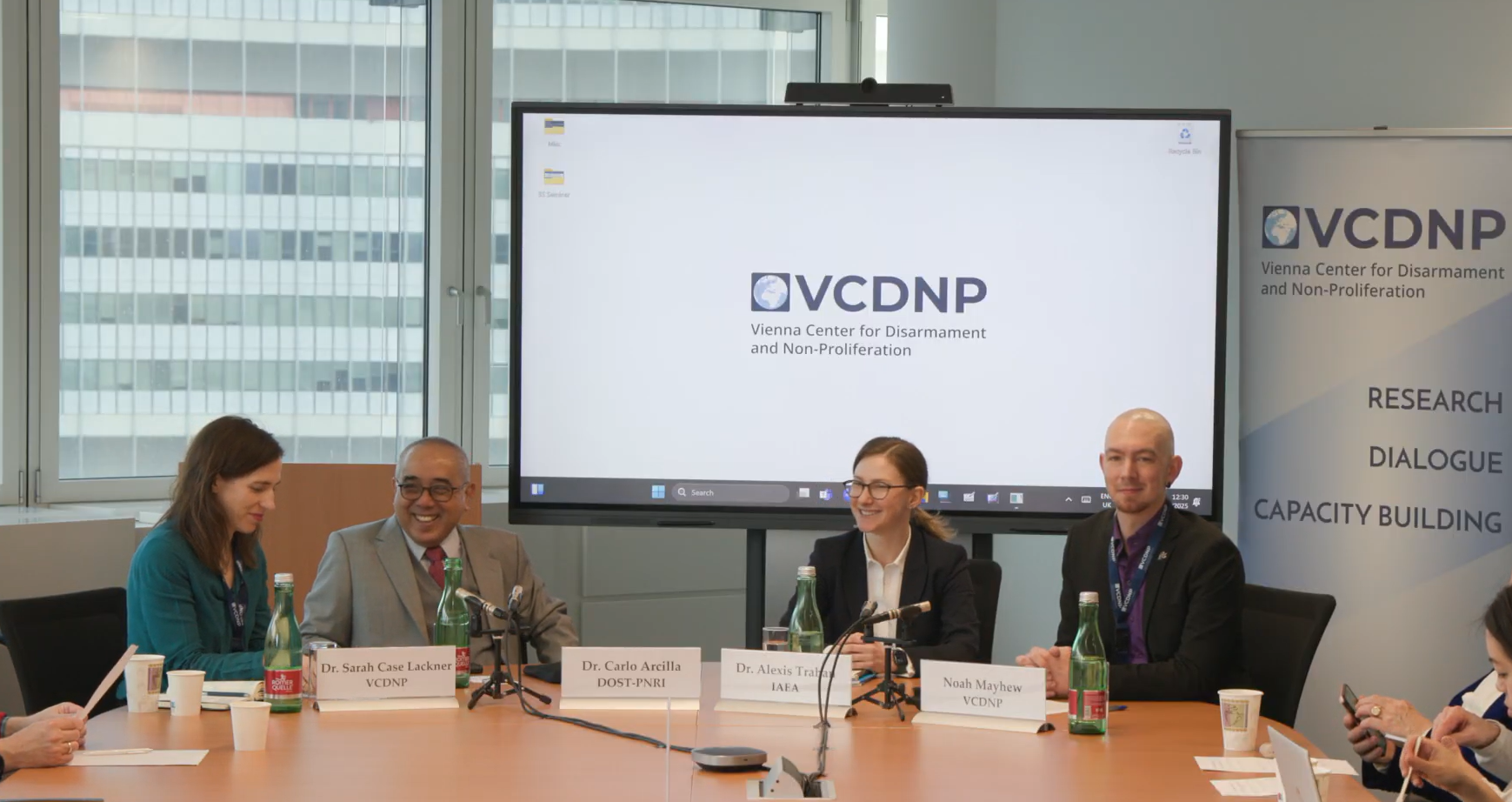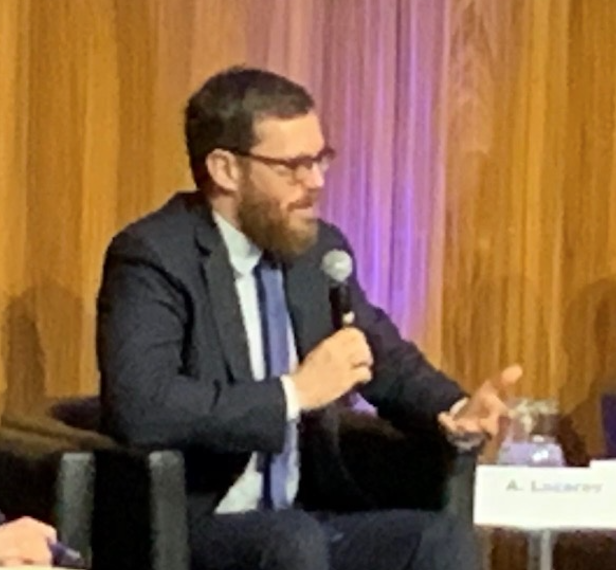
The International Atomic Energy Agency (IAEA) held its third International Conference on Nuclear Security (ICONS) in Vienna, Austria from 10 to 14 February 2020. The VCDNP both participated in ICONS 2020 and held events focused on nuclear security on the sidelines.
VCDNP Research Associate Artem Lazarev presented during an ICONS technical session on the role of non-governmental organizations in nuclear security capacity building. His presentation was based upon a paper on the VCDNP's contribution to nuclear security, co-authored with VCDNP Senior Research Associate Ingrid Kirsten. Mr. Lazarev provided several examples of the VCDNP’s work in this domain, which span three groups: (1) outreach, promotion and awareness raising; (2) capacity building; and (3) bridge building.
Outreach, Promotion and Awareness Raising
The VCDNP's activities in this domain notably include two high-level events – one promoting the Amendment to the Convention on the Physical Protection of Nuclear Material organized by the VCDNP in cooperation with the IAEA in 2016, and another on building bridges and facilitating consensus for a successful ICONS 2020, which took place in January 2020, featuring IAEA Director General Rafael Mariano Grossi, Ambassador Cristian Istrate (Romania), Ambassador Omar Amer Youssef (Egypt) and Ambassador (ret.) Laura Holgate (Nuclear Threat Initiative).
Capacity Building
In February 2019, the VCNDP in close cooperation with the IAEA developed and conducted a Nuclear Security Professional Development Course to support capacity building in IAEA Member States embarking on the development of nuclear power. Nuclear security is also a focus during the VCDNP’s biannual short courses for diplomats and practitioners on disarmament and non-proliferation.
Bridge Building
The VCDNP also provides a platform for dialogue on the intersection between nuclear security and peaceful uses of nuclear technologies. So far six panel discussions have been held under this project, which gathers IAEA Member State diplomats and experts, as well as IAEA and other international experts. The VCDNP is also producing fact sheets related to the panel discussions that serve as an additional source of information for diplomats and policymakers.
In conclusion, Mr. Lazarev reiterated that the VCDNP and other NGOs play an important role in supporting the IAEA and its Member States in their nuclear security effort, particularly in the area of capacity building and in facilitating dialogue, information sharing and awareness raising.
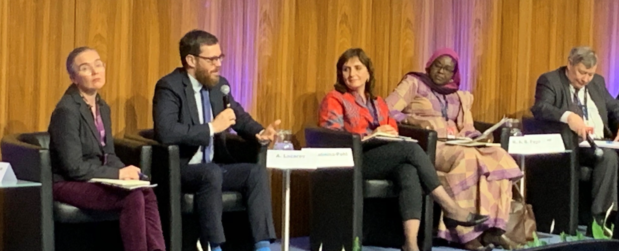
The VCDNP hosted a roundtable discussion on regional cooperation on security safety and safeguards in Africa, organized by the International Science and Technology Center (ISTC). Mr. Boster Siwila, Dr. Lazaro S.P Busagala, Mr. Justice Chipuru, Mr. Chimwemwe Gamulani and Dr. David Otwoma of the regulatory authorities of Zambia, Tanzania, Zimbabwe, Malawi and Kenya talked about the importance for their respective countries of regional and international collaboration to manage nuclear and radioactive materials in a safe and secure manner.
Collaboration between the European Union and the Southern African Development Community on a pilot project to monitor the transportation of uranium ore concentrate was a central focus of these discussions. The web-based information tracking system that is being used for monitoring the movements of radioactive sources and materials was introduced by the software developers.
The African Commission on Nuclear Energy's (AFCONE) Executive Director Messaoud Baaliouamer provided an overview of the responsibilities of AFCONE under the Treaty of Pelindaba and in facilitating and coordinating cooperation in nuclear matters in Africa. AFCONE promotes and enhances the peaceful application of nuclear science and technology for development and fosters regional and international cooperation in peaceful applications, as well as nuclear disarmament and non-proliferation. Mr. Haroldo Barosso from the IAEA's Department of Safeguards also provided an overview of the Agency’s cooperation with countries in the region.
During the answer and question session, participants agreed that more needed to be done to promote the benefits of peaceful nuclear applications for socioeconomic development and the country representatives highlighted the need for more detection equipment and training.
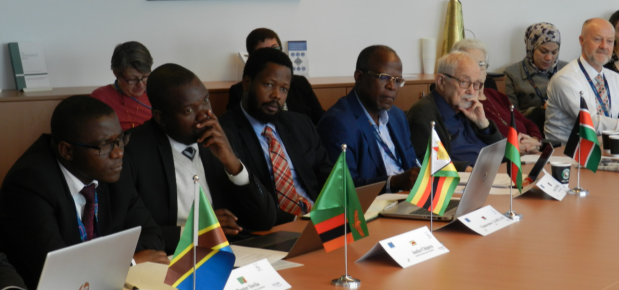
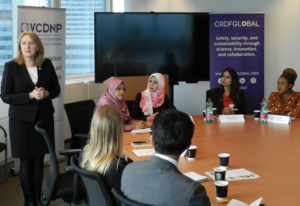 In cooperation with CRDF Global, the VCDNP hosted a panel discussion on women in nuclear security. The event featured four alumni of the Robin Copeland Memorial Fellowship program: Ms. Sabariah Kader Ibrahim (Malaysian Nuclear Agency), Dr. Amria Elabd (Egyptian Nuclear and Radiological Regulatory Authority), Ms. Jeaneth Kabini (South African Nuclear Energy Corporation) and Ms. Urvashi Rathore (Indian Observer Research Foundation). VCDNP Executive Director Elena Sokova offered opening remarks and the panelists discussed their experiences as fellowship alumni and women in nuclear security.
In cooperation with CRDF Global, the VCDNP hosted a panel discussion on women in nuclear security. The event featured four alumni of the Robin Copeland Memorial Fellowship program: Ms. Sabariah Kader Ibrahim (Malaysian Nuclear Agency), Dr. Amria Elabd (Egyptian Nuclear and Radiological Regulatory Authority), Ms. Jeaneth Kabini (South African Nuclear Energy Corporation) and Ms. Urvashi Rathore (Indian Observer Research Foundation). VCDNP Executive Director Elena Sokova offered opening remarks and the panelists discussed their experiences as fellowship alumni and women in nuclear security.
The discussion centered around the steps the panelists have taken both personally as nuclear security practitioners to grow professionally and to address unique issues and challenges of their own nations. Following the discussion there was a question and answer session that covered topics such as how to further expand the fellowship program, the impact of social media on the profession and how each panelist’s individual project challenged perceptions about gender in nuclear security.
